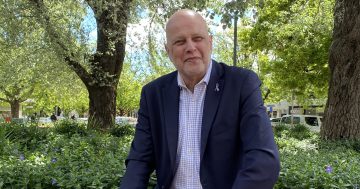
Bluey’s caused concern for parents about how body issues are addressed on a children’s show. Image: Screenshot.
Bluey is undoubtedly one of Australia’s most loved kids’ shows and one of our most successful cultural exports. The little cattle dog, and her family and friends, have been celebrated for engaging content that is refreshingly uncomplicated and that provides something for adult and child audiences alike.
But a recent episode has been criticised for missing the mark when it comes to discussing weight loss, exercise and health.
In the episode, Bluey’s parents both reflect that they are unhappy with their weight – including after stepping onto a scale and grabbing at the fat on their cartoon bellies.
Bandit, Bluey’s dad, when asked what’s wrong, says, “I just need to do some exercise”. The rest of the episode concerns activity and health, but these opening scenes have dismayed some parents.
The criticism is that the focus on weight and dissatisfaction with appearance reinforces negative body image and connects health and wellbeing to our physical appearance in a way that isn’t productive for kids. So how should we talk to kids about health and wellbeing, and should body weight form part of the conversation?
I grew up being told directly by adults, always in front of other people, that I was fat or, conversely, being congratulated if I had lost weight. This was the case from when I was a child – my aunts and cousins would visit us from overseas or interstate, and the first thing they would say would be, “Wow, you’ve gotten so fat”, or “You’ve lost weight, you look beautiful”.
I knew from before I really had any sense of my own feelings about my body that I should feel ashamed or elated depending on what this regular external feedback told me. At no point did anyone suggest that I should exercise to be healthy and strong and capable – but I was encouraged to go for walks if the consensus was that I was chubby. Equally, when I was deemed too slim, I was told to stop exercising. It was confusing and has fostered a conflicted and negative relationship with my body for my whole life.
My experience was heavily influenced by my culture (in which the communal nature of family is often considered license for criticism) – but it’s not that different from what many of my non-Indian friends and networks experienced. Indeed, a widespread understanding of the harmful impacts of body shaming and fatphobia has only really occurred in recent years.
We know now that when talking to kids about fitness, it’s important to focus on the positive impacts of taking care of our health through exercise and nutrition. Teaching kids about the good outcomes that come from good health, as opposed to creating a negative trigger (exercise so that you are healthy, not exercise so that you’re not fat), is vital. And addressing poor health should be done in a way that is targeted to the individual, that is respectful and that considers their age and circumstances.
I don’t think there is a need to talk about weight specifically or reference weight when talking about health with a child or young person (and arguably, for adults too). Where weight is a factor, I feel like that’s a conversation for people to have with their healthcare professionals if needed, and it really shouldn’t be part of our public discourse on health and wellbeing, especially for children.
I don’t think it should be difficult to achieve this shift in public conversation. Our collective imaginations have already stretched to taking parenting insights from animated cattle dogs; pushing that conversation to a more body-positive space is not an extravagant ask. Undoubtedly, there will be those who think this is wokeness gone mad, but I just don’t see how trying to avoid creating negative self-image in kids could ever be a bad thing.















